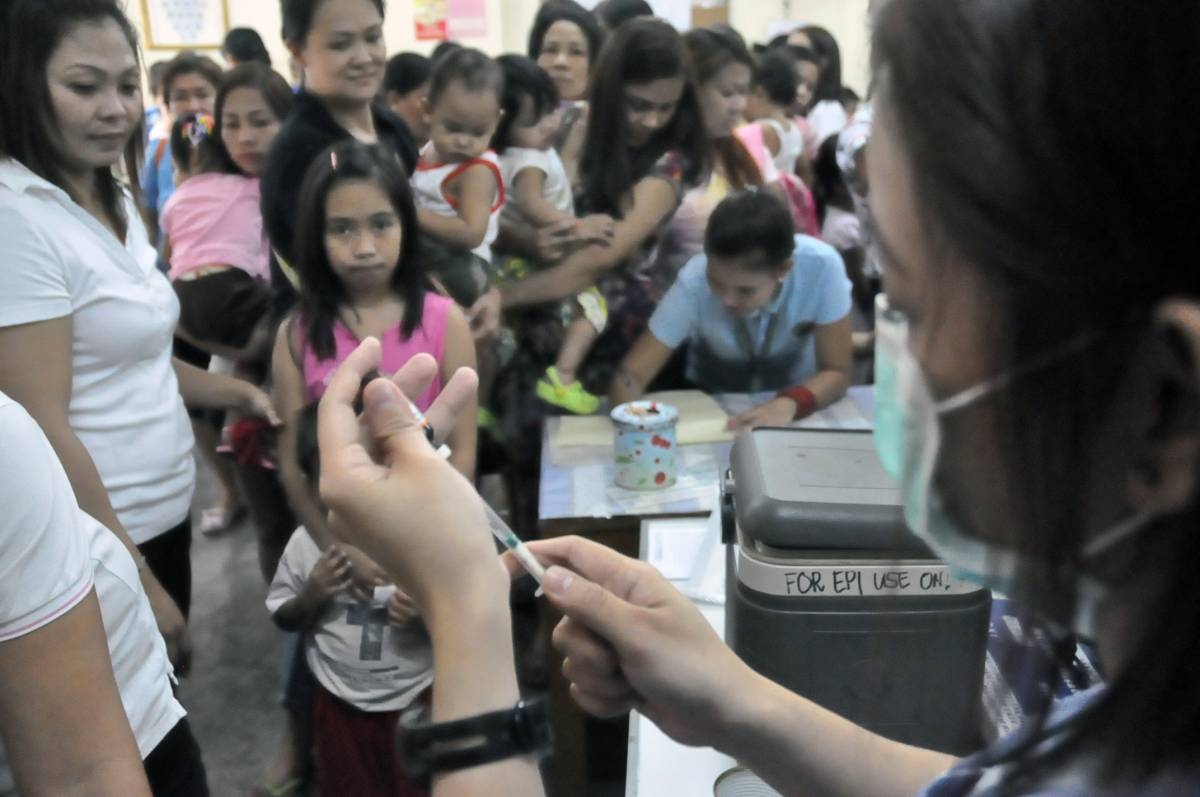In recent years, the Western Pacific region has been grappling with a measles crisis, with cases skyrocketing by 255 percent from 2022 to 2023, according to the World Health Organization (WHO). This alarming increase can be attributed to gaps in vaccination coverage and disease surveillance.
In 2021, the region reported 1,080 cases of measles, which increased to 1,422 in 2022. However, the number of cases surged to a staggering 5,044 in 2023. The decline in vaccination coverage during the Covid-19 pandemic, ongoing measles outbreaks in the Philippines, and persistent endemic measles transmission in Malaysia have all contributed to the threat of measles resurgence in the region in the coming years.
Dr. Saia Ma’u Piukala, WHO regional director for the Western Pacific region, emphasizes the importance of maintaining high coverage of measles vaccination and strong surveillance systems to prevent the reestablishment of measles transmission. Even countries that have achieved elimination cannot afford to relax their efforts.
While the Western Pacific region did not experience large measles outbreaks like other parts of the world in 2023, approximately 3.6 million children in the region missed their routine immunizations between 2020 and 2022, as reported by WHO. This highlights the urgent need to address the gaps in vaccination coverage.
Measles is highly contagious, spreading easily through respiratory droplets when an infected person breathes, coughs, or sneezes. An infected individual can potentially infect 12 to 18 more people, making it crucial to maintain high vaccination coverage.
The risk of outbreaks increases when measles is imported into communities with vaccination coverage below 95 percent. This underscores the importance of achieving and sustaining high vaccination rates to protect vulnerable populations.
In response to the crisis, 11 countries in the Western Pacific, including Fiji, Kiribati, Marshall Islands, the Federated States of Micronesia, Mongolia, Palau, Papua New Guinea, the Philippines, Samoa, Solomon Islands, and Vietnam, have conducted nationwide measles and rubella vaccination campaigns or catch-up vaccination activities between 2022 and 2023.
However, there is still much work to be done to ensure that countries in the region maintain robust immunity through vaccination, particularly among hard-to-reach populations and individuals who travel frequently.
One crucial aspect of preventing measles outbreaks is the establishment of strong early warning and disease surveillance systems. These systems should include complete case investigations to swiftly identify and confirm potential measles or rubella cases before they escalate into larger outbreaks.
Dr. Piukala urges countries in the Western Pacific to learn from past measles resurgences and continue their efforts to reach every child with life-saving vaccines. It is essential to strengthen surveillance systems, encourage health workers to remain vigilant, and educate the public about the importance of ensuring their vaccinations are up-to-date to prevent future outbreaks.
The Western Pacific region must address the gaps in vaccination coverage and disease surveillance to protect its population from the threat of measles. By prioritizing high vaccination rates, strengthening surveillance systems, and promoting public awareness, the region can work towards eliminating the risk of measles resurgence and safeguarding the health of its communities.







